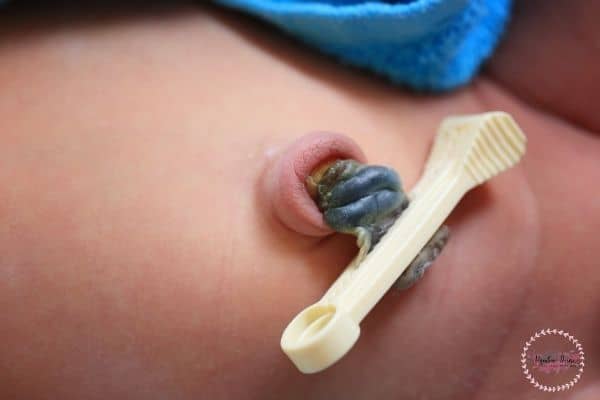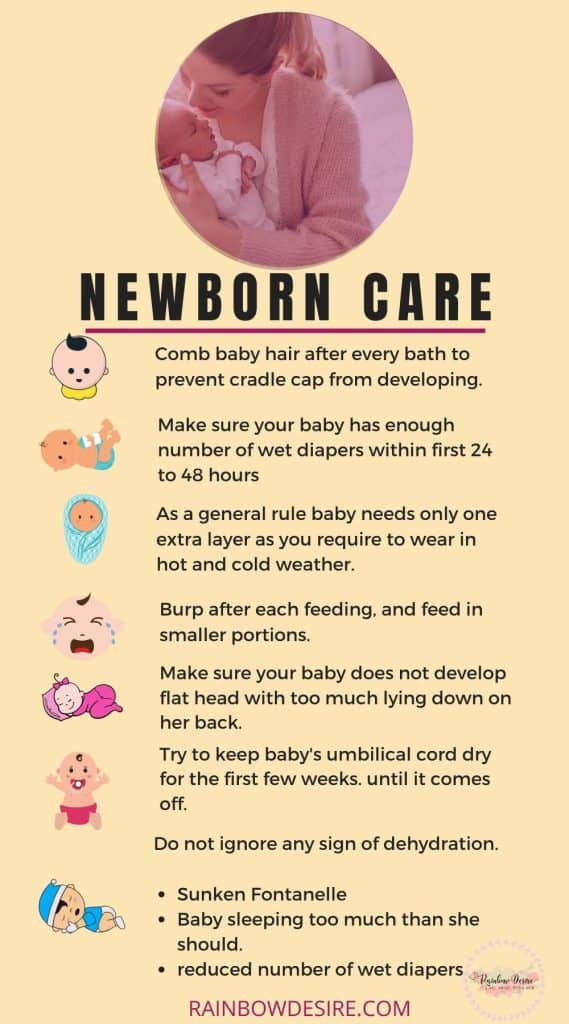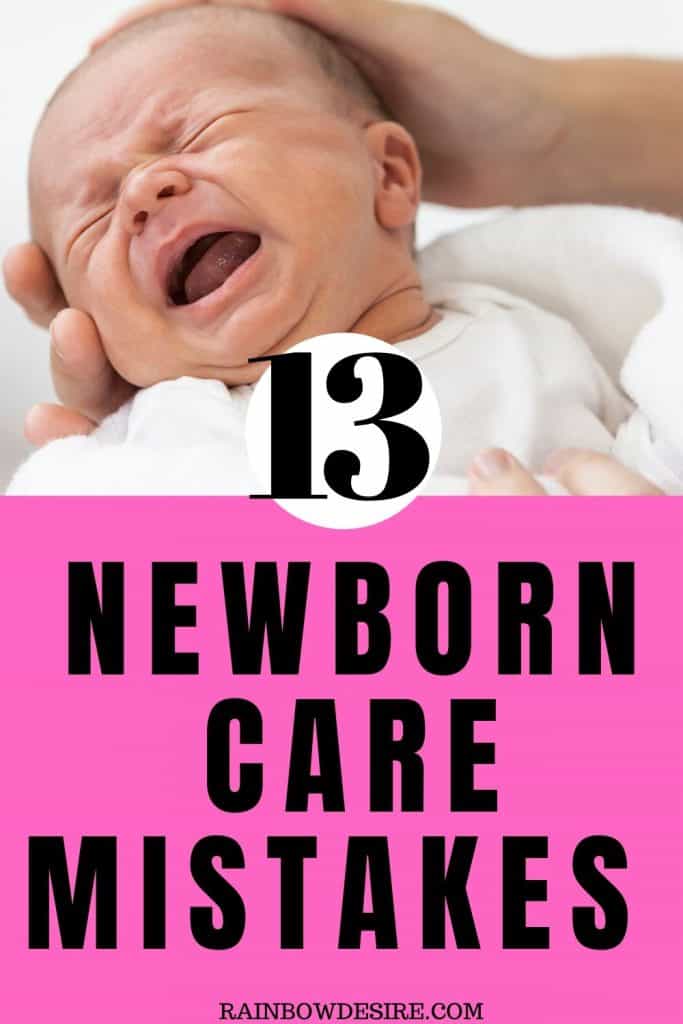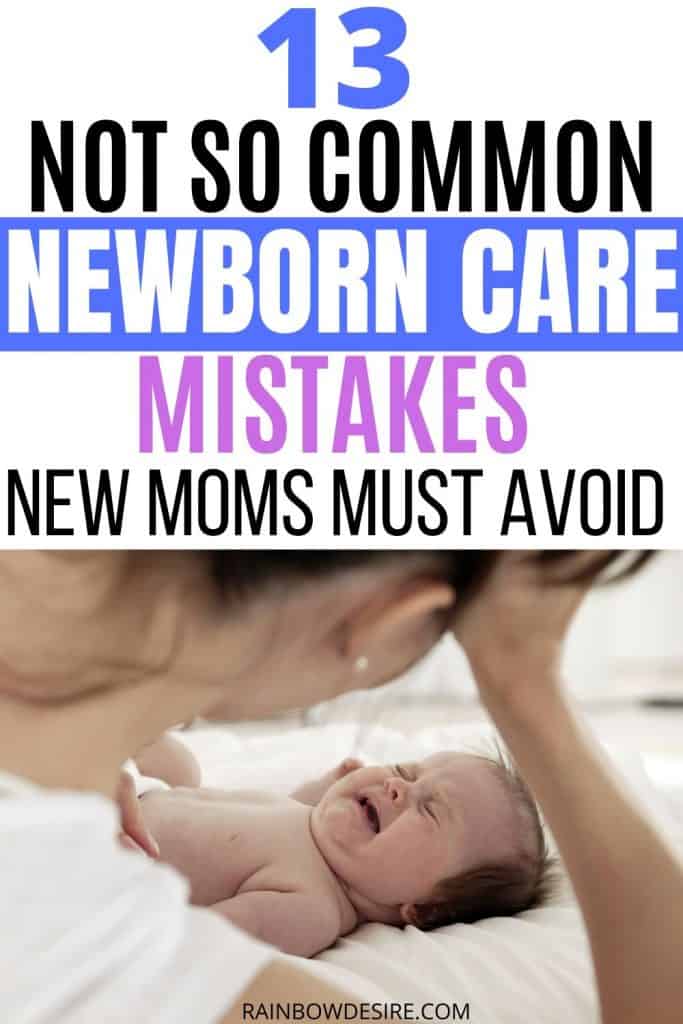Motherhood is a learning curve, and every day there is something new to this challenging phase of being a parent. Moms learn everything by themselves on their journey to motherhood and become the best judge for their babies. However, we all make naive mistakes in this learning process, and we must learn from our mistakes.
First-time parents tend to make common mistakes with babies that may seem normal without any significant consequences, whereas they could have an impact in some cases.
Newborns are fragile, therefore, it is important to keep the baby’s safety and health into consideration at all times.
Every baby is different and takes her sweet time to get settled with this new life. Therefore, parents do not know in advance what challenges are coming their way.
Let’s talk about a few honest mistakes that new parents could make during the first couple of months after birth. Although these bloopers may seem harmless, in some cases they could have temporary consequences that require professionals’ advice leaving parents worried.
This post may contain affiliate links. Please read our disclaimer for more information.
Not-so-common Mistakes new moms make with newborns
1. Overfeeding or less feeding
Doctors advise feeding newborns at least every two hours to meet their feeding requirements for the first several weeks after birth. This process helps moms establish a quicker milk supply right after delivery. Newborns do not need a lot of feed at this point just a few drops of colostrum is sufficient. As days go by their feeding requirements increase as growth kicks in.
Naturally, newborns cry when they are hungry, even if they just ate. Since latching on to mom’s breasts would calm them, feeding on demand or cluster feed for the first few days after giving birth is perfectly fine. That is a quicker way to have a milk supply that takes 3 to 5 days for moms after delivery.
The good practice is to nurse them for a reasonable amount of time, if they are asleep, wake them up and feed them because while nursing it is somewhat unpredictable how much the baby has eaten. Most Experts advise 15 minutes at least on each side.
Feeding on demand by following hunger cues that the babies show by sucking on their hands or crying is another way to meet the baby’s feeding requirements.
The best way to do it is to pump out breastmilk and bottle feed to understand better how well your baby is eating.

If you are giving a top feed (formula feed), start with a small portion because when you are bottle feeding, there is a slight chance of overfeeding as bottles are fairly easy to feed. Babies have tiny stomach that fills up fairly quickly.
However, overfeeding would not harm, but it will eventually result in a huge spit-up, and the baby is going to throw up almost everything.
This certainly does not mean that if your baby is crying out of hunger and you don’t offer anything because they just ate. Always remember, every baby grows at a different pace, so their growing needs tend to vary.
Using too much Pacifier
Moms who are struggling with supply should avoid introducing pacifiers to their newborns because it may delay the milk let down the process for breastfeeding moms.
Introducing pacifiers too early may also arise a problem of nipple confusion. So ideally it is equally important to understand when you should start pacifiers for your newborn.
However, if your newborn constantly wants to cluster feed, introducing pacifier is the best solution. But remember, cluster feeding does help establish milk supply faster for the first few weeks for newborns.

Every baby is different; some may not like taking pacifiers. In such cases, pacifiers that do not cause nipple confusion is your best bet. This Ninico breastfeeding pacifier mimics the nipple feel and comfort for babies.
2. Not burping your baby after a feed
Burping is as essential as feeding a newborn. Babies need to burp once they are done eating. Keeping your baby elevated after a feed or putting her on your shoulder for 15 to 20 mins is essential so they do not throw up immediately after eating.
Babies having reflux issues may need more time to stay elevated after feeding. So, if you have to put your baby down due to any reason (chores) or you have to take care of other kids too, put them in a baby rocker that keeps them elevated after feeding.
Moreover, wearing your baby is also a good option for keeping her elevated and combatting any reflux issues.
Related: Effective ways mom can help babies burp and relieve gas issues.

3. Waking them up for Night Feedings
Newborns love to sleep all day long as they have been sleeping in the womb. Feeding them every two hours throughout the day is essential. Ideally, moms need to wake them up for feeding during the day every two hours.
Babies need 8 to 12 feedings in 24 hours each day. Each feed has to be in 2 to 3 hours. Gradually you can stretch feeding hours as the baby gets to eat better with time.
Moreover, you should stretch one feed to 4 hours, preferably at night if your baby has been eating well during the day. This will help the baby sleep through the night.
Besides, babies wake up when hungry or dirty, it will not be more than two hours anyway. However, If they sleep longer than 4 hours, Set an alarm for 4 hours, wake them up and feed them as they should not get dehydrated in the early days of their lives.

Not all babies are the same; some might get hungry every hour to 90 minutes initially, whereas some are cozy and sleepy and would not wake up until you wake them up for the feed.
As a rule of thumb, if the baby starts eating well during the day and gaining weight, you don’t have to wake them up and feed them every two hours at night.
This would help them develop a sound nighttime sleep schedule. Let them sleep, and you sleep, too – while they are asleep.

4. Ignoring the signs of dehydration
Remember, when dehydrated, babies tend to get sluggish, fatigued, and sleepy. Keep an eye on the baby’s health and talk to your doctor immediately if you notice any signs of lethargy or if the baby is skipping two feedings in a row or seems disinterested.
If you notice an ORANGE color pee in a diaper- it is a sign of severe dehydration that should never be ignored.
Other signs of dehydration are a lethargic baby, sunken fontanelles, sleeping more than usual, and not having enough wet diapers for the first few weeks after birth.

5. Some babies cluster feed in those early weeks
While you follow 2 hours feeding schedule, it is equally important to understand some babies may want to eat more often than rest. Cluster feeding is when babies want to eat more frequently during some hours of the day or night. Wake up more often for feedings.
Moreover, offer dream feedings at night to your baby if your baby wakes up crying due to hunger. Dream feeding is actually waking up your baby to feed before their hunger kicks in and wake up crying. Feed your baby before you go to bed so that you both can sleep for at least 4 hours at a stretch.
Choosing a dream feed at night or feeding on demand during the day entirely depends on your routine and how feasible it is for you and the baby.
8 Reasons why your baby is refusing a bottle or not nursing.
12 Reasons why your baby is having trouble sleeping through the night.

6. Exclusively breastfeeding when there is not enough supply
Firstly, new moms must know that if babies do not get enough nutrition for the first few days, babies do get dehydrated.
For some moms (not all), it takes a while for them to have a milk supply of about 3 to 5 days. Besides every mom wants to have a supply right after delivery and unfortunately, that’s not always possible for every woman. Some women’s bodies start producing the right amount of milk supply right away to meet their babies’ nutritional demands, whereas some have to wait.
When moms deliver they get colostrum, thick yellowish milk, which is all the nutrition your baby needs for the first several days of her life, also this gold milk (colostrum) has infection-fighting antibodies.
As colostrum is the first food, your baby is going to get, that is supposed to be enough for her tiny stomach in those early days. Also, it is very light and easy on digestion so: babies tend to get more hungry. That is why moms need to keep expressing more colostrum to help babies get more interested in nursing.
After colostrum, the supply of transitional milk with a more runny and whitish color set in within a few days. Transitional milk sets in once your baby gets a good latch and nurses more. Remember, breastfeeding is a demand-and-supply relationship; the more you nurse, the better the milk supply will be.

Unfortunately, it is normal for babies to lose weight during the early days of life after birth. About 7 to 10% of newborn weight loss from their birth weight is considered normal.
- If your baby loses more than 10% of her birth weight in the early days of her life and she does not have enough wet diapers within 24 to 48 hours, then this needs immediate attention.
- Hospital doctors and nurses evaluate the baby’s progress in terms of feedings, wet diapers, and weight analysis.
- Pediatricians monitor the baby’s growth for the first two weeks after birth and see if your baby is gaining weight. Otherwise, they may ask you for a supplement using formula along with breastfeeding. You can do a combination feed if your baby needs more milk unless you get enough supply.
Related: 14 natural ways to increase low milk supply overnight.

- To increase breastmilk, you can eat lactation cookies to improve your milk supply quickly. Also, try using breastmilk supplements to produce more milk.
- If you are expecting your first baby, get this online breastfeeding class by MILKOLOGY. Stacey is a certified lactation educator.
- There is nothing like breastmilk for babies, and it should be a priority but, there could be numerous other factors for not having enough milk supply or baby not eating enough.
Talk to your doctor about other possible options.
- Lactation consultants are a great help when you feel like quitting and not trying enough, they come for you. I would suggest you should get a breastfeeding class before you deliver.
Read more
44 Breastfeeding tips for overwhelmed new moms.
If you are struggling with less milk supply, here are the food suggestion you might need, which helped me immensely to increase your milk supply.

7. Feeding regular formula on the Sensitive Stomach
Some babies have sensitive stomach. They cannot digest the regular formula, which results in frequent spit-ups.
Not only formula but some breastfed babies are also sensitive to certain foods. If breastfeeding moms eat too many chocolates, their babies may spit up too often.
Babies’ digestive tracts mature as they grow, so choosing a formula for a sensitive stomach is the best way to minimize spit-ups.
Related:
Why is your baby spitting up more after feeding?

8. Not noticing any food allergies during the first several weeks
Although you can eat whatever you want to eat or drink in moderation, you might want to avoid food that could be gassy for you like broccoli, cauliflower, etc. for the first few weeks. Moreover, it entirely depends on individual preference and metabolism.
Your baby will get used to what you eat, eventually. However, eating healthy is not supposed to be affecting your baby’s digestion negatively. Still, it is always a good idea to watch for any signs of allergies after eating food like peanuts, dairy intolerance, and eggs.
Allergy signs are frequent spitting up after eating a specific type of food, rashes, etc. Some food allergies run in the family history, but your baby will likely not be sensitive to any food later in life.

9. Not following proper skincare in babies
When you bathe your newborn, thoroughly dry them up, including folds in their neck, arms, legs, thighs, wrists, and armpits: otherwise, the moisture will make their skin red and itchy.
Use an organic and mild body wash for newborns by Earth Mama Organics. Hospitals use Earth Mama products for NICU babies and families that are amazing and perfect for sensitive skin.
How do you know if the baby feels itchy?
- Well, it may be an old wife’s tale, but I have found this true in the case of my kids. If you notice your baby spitting out saliva (not drooling) in tiny bubbles around their lips, that is a significant sign of the baby feeling itchy somewhere.

- Use non-fragrant body lotion for babies to keep their skin perfectly moisturized, nourished, and balanced.
- Do not use baby powder; It is unhealthy for the baby’s lungs. However, if you still want to use it, look for talc-free options.
Learn more about Baby’s head and skin handling.
Read more
Baby diaper rashes and how to treat them in an effective and fairly quick way.
10. wetting the Umbilical cord delays the drying process
Bathing your newborn everyday while umbilical cord is still on could delay the drying process of the umbilical cord as it gets wet. My son’s umbilical cord took almost five weeks to come off. My mistake was: I used to bathe him every day, and would care less about the cord. This thing didn’t let the cord dry out quickly.
New moms should not make the mistakes I made.
Make sure that the umbilical cord is not getting wet whenever its bathtime for the baby. Umblical cord comes off in a week or two if kept dried for the most part.

Watch out for any signs of infection like redness and swelling or yellow fluid on the umbilical cord, though it might bleed a little bit, which is normal. Other than that, you should know about the signs of an umbilical hernia.
Read more
How to make tummy time with the baby.
11. Not combing hair after bathing your baby
My son had developed the cradle cap on his head, and it was extremely itchy. Cradle cap is a scaly and patchy scalp condition that forms thick greasy crusty yellow patches. Although the cradle cap is not harmful to the baby, still, it is uncomfortable to some extent and keeps parents worried.

In search of remedies, I have tried coconut oil, olive oil, and whatnot. The only thing that helped was oil massage and then washing hair with a mild shampoo and gently combing the scalp while the hair is still wet. It will remove all that dead skin gradually within a couple of weeks.
The purpose is to scrape off that dead skin but, you should not be doing it with your nails. Using this cradle cap comb set should help. It is soft, inexpensive, and works like a charm.
Learn how to get rid of cradle cap fast with this easy remedy.
Read more
42 Newborn baby hacks for smart moms.

12. Ignoring Flat spots on baby’s head
Unfortunately, in some cultures, it is very essential to shape a baby’s head by placing hard surfaces underneath the baby’s head.
Laying the baby down for long hours on a flat surface could also lead to flat spots on the baby’s head. Due to this practice, a lot of babies get flat-headed often known as Flat Head Syndrome or Plagiocephaly.
Generally, babies’ heads shape up with time. Moms need to keep an eye on the baby’s head shape for the first couple of months after birth. However, if you ever notice flat spots on your baby’s head, please seek pediatricians’ advice. In extreme cases, babies might need proper therapy for flat-head called Helmet Therapy.
Related: How to prevent flat spots on baby’s head.
How you can avoid having flat spots
Flipping sides (left and right) when your baby sleeps may prevent flat spots on one side. Babies who move their heads on one particular side may end up having a flat head if they stay in that position for a long time.
This is the reason, tummy time is encouraged once your baby’s umbilical cord comes off.
Using a flat head prevention pillow would help in avoiding flat-head. This pillow you can use in car seats and bouncers to avoid one side getting asymmetrically flat.
If you choose to use any head shaping pillow, always discuss it with your child’s pediatrician, please be watchful and NEVER leave your child unattended with the pillow instead use it when you are around during your baby’s playtime or in the bouncer.
Putting anything in the crib with an infant could be a potential risk of SIDS (Sudden Infant Death Syndrome).
Read more
How to Prevent Flat Head in Infants.
Baby’s head Handling – Everything you need yo know about Baby’s head, eyes, nose, and face.

13. Over-dressing or under-dressing your baby
Well, babies or infants have to be in one extra layer as you are wearing. Suppose you are wearing a single layer, add one more for your infant.
Please consider the following factors when you dress them up. During the summer and winter seasons, the temperature inside the car and outside should be in your consideration.
During the winter season keep a blanket to cover your newborn. When babies are in their car seats, it is not very airy for them to feel cold. Just have their feet covered as well as proper clothing. Using breathable car seat covers outside would help them stay comfy and less vulnerable to catching germs.
During summers rear-facing seats tend to stay warm. Just keep checking the temperature in the backseat. Sometimes babies cry because of the heat in the car. Please do not cover your infant in his car seat or stroller under a blanket during the summer season as the temperature is relatively higher inside the covered car seats. Too many layers or too few layers as not being weather appropriate could be an issue for babies.
Read more
Clothing and accessories that your baby needs for the first year.
Tips on going out with your newborn and how to keep your baby safe.

14. Not using Noise Machine for light sleepers
My babies are light sleepers. My firstborn had always wanted to be held up, and he hated his crib, so I ended up co-sleeping with him, but the only thing I regret about Co-sleeping was he just couldn’t sleep better. When I woke up, he woke up too. I regret not using a noise machine earlier. I recently started using this and now, because my daughter – who used to be a good sleeper is not a good sleeper anymore – wakes up crying every half hour.
For light sleepers, even the slightest sound could wake them up. For that reason, the noise machine is a pretty helpful tool and it improves sleep quality as well.
I have been using it for a while now, and I absolutely love it. I highly recommend using it. This one is compact and super portable and goes everywhere with us. I love the rain sound.
New moms are exhausted due to sleep deprivation as it takes time for babies to have a sleep schedule. As a new mom, you cannot avoid sleep deprivation altogether.
Related: How to manage sleep deprivation for moms with newborns.
15. Applying medication for baby Acne
It is normal for infants to get baby acne. Please do not apply anything to the baby’s face. Just clean her face with water. It goes away in a few days on its own.

Or if you still want to, you can apply breastmilk to the baby’s acne.
If baby acne stays longer than usual or makes you concerned, consult your pediatrician.
Everything you need to know about newborn skin conditions.
16. Leaving infants in the baby gear like stroller or carseat
Many parents prefer to let their newborn sleep in a car seat while on a car ride or when they get home. It is not wise to let babies stay in elevated position for a long duration throughout the day – as a rule more than 2 hours in 24 hours duration.
Babies need to lay flat on their back as in the bassinet especially while sleeping because
- First, it can cause a strain on baby’s still developing spine.
- Secondly, it may restrict air flow to baby’s lungs.

17. Leaving an infant in the vehicle unattended
New moms are sleep-deprived and exhausted. However, for some moms, if not all, mommy-brain gets real, and it takes time for thinking to get better. Keep your baby’s safety in mind and do not leave your infant in the car unattended, not even for a single minute. No matter whether it is summer season or winter season, leaving your infant in a vehicle unattended could have serious consequences.
18. Allowing too many visitors
During these times when every individual is vulnerable to catch any virus, babies need more care and safety regarding such issues. Allowing too many visitors to celebrate your newborn is not a good idea for the first several weeks. And most importantly tell your guests politely not to kiss the newborn baby as it may have risk of transferring respiratory disease.
Moms tend to make mistakes; it doesn’t matter if they are first-time moms or second time, their babies are different. Things that may work for me might not work for you because the circumstances are different, and babies are different too. However, it is always good to be aware of potential risks involved in parenting or raising a baby.
22 Facts about Newborns that new moms need to know.
Every mom has her own instinct to follow. There are a few sensitive issues (regarding breastfeeding, etc.) that are not in ANY CAPACITY to suggest or advise any mom to do contrary to, as she wishes to do. DO WHAT YOU AS A MOM THINK IS RIGHT AND IN YOUR CHILD’S BEST INTEREST.
Read more
How to protect your newborn during the Pandemic.
15 health conditions in newborns that need medical evaluation.
First-time parent’s mistakes with babies- every new parent should know about it.














I learned the hard way with some of these when my kids were young. I’m sure this will be a really valuable post for new parents.
Yeah absolutely – Parenthood is about learning the hard way. I hope new parents don’t have to learn the hard way and that’s the goal.
Thank you very much.
Thank you for posting things you’ve experienced with you’re children. I have a 2 week old granddaughter and you’ve posted a couple things that she will find very useful. Thank you 😁
Thank you for reading.
I am glad, my post is valuable to you for the little ones in your family. Congratulations to you for the little bundle of joy.
You are very welcome. 🙂
I’m a first time mom and instead of using a noise machine when my baby was born I played music the whole night. During the day I would keep the tv on with news or so or switch to music.
That’s a great idea too. While putting them to sleep, at times I tend to sleep before them because that sound of rainfall feels so soothing. I guess music will be more fun. 🙂
Thank you for sharing your experience. 🙂
My husband can’t sleep without the noise of the fan going on beside him. This helps our baby too to sleep better.
Thank you for the article. It was really informative. My first born will be here in a few months so I’m reading up!
Thank you very much.
I am glad you have found my post helpful. I wish I had known all of this when I became a mom.
Motherhood is a beautiful thing. I am sure you are going to be a great mom.
Most of this makes sense. The only thing I want to point out is that it’s not true that C-section moms have problems with breastmilk supply or delay in milk production. However, I do agree with your point to not be afraid to supplement of needed.
My experience at both of my C-section deliveries was the same. Late milk supply – Took almost four to five days for me to have my BF settle in. Everyone’s body is different. I had to supplement formula for both of my kids.
I totally respect your opinion. Everyone’s experience is not the same.
Thank you for your response. 🙂
3-5 days is actually the normal amount of time for breast milk to come in. Before then is colostrum which is high in protein and all the baby really needs for the time being. Many babies need more feedings during these first few days as their tummies are so tiny and need to be replenished more often. More frequent feedings also assists with letdown. Some moms are lucky and their milk comes in much sooner, but c section or natural can take 3-5 days on average.
Thank you for your input. Yes, 3 to 5 days for milk supply to settle in.
All babies are different and all moms are different too. Every mom’s body responds differently after delivery.
Moms could consider supplementing if their bodies do not respond right away to fulfill their babies’ requirements. It doesn’t make them any less of a mom.
agreed! milk typically comes in 3-5 days after delivery, in the mean time colostrum supplies everything babe needs filling their grape sized bellies. I think adding to the fear that a new mom’s body CAN’T nourish their baby is part of the problem. we as a society should be more educated on the ways our bodies CAN birth and nourish babies and how best to support a new mom to do so because truly NOT being able to is rare more often it’s a lack of support for Mama and baby.
You are absolutely right! Colostrum is great. That’s the best your child could get from a mom right after birth.
Some kids happen to be fussy and just letting them starve because it is taking a while for a mom to produce milk for her child is not justified either. +
A mom is the best person to decide what her child needs and how her child should be nourished.
Supplement or no supplement doesn’t make her any LESS of a mom.
I didn’t know that milk supply was effected by c-section? It wasn’t for me. My daughter was a c-section and i got my supply in that night.
Thank you, Courtney, for your input. I really appreciate that.
I have struggled with breastfeeding for a few days initially for both of my kids and this happened to most of the C section deliveries I know. My daughter cried three nights straight for milk and I regret not giving her formula as she was having reflux issue. She was STARVING whereas I spent my whole night latched her on me.
I am so glad I have found you who got it the same night.
Thank you!
You were doing your best. A friend of mine too had to supplement after trying for a week unsuccessfully to solely breastfeed.
Thank you Viv. That’s much needed. 🙂
Milk production is triggered by the separation of the placenta from the uterus, so technically c section vs vaginal birth there is no difference. However milk production can be delayed after c section if there is a delay in initial skin to skin and breastfeeding, or if the birth was especially traumatic (but that can happen with vaginal birth as well). I have had two c sections and no problem with milk production, but my c sections were planned and calm and skin to skin was initiated immediately. Just some info for moms who think they wont be able to breastfeed after a c section, you can!! 🙂
Thank you for your input. I really appreciate that. 🙂
I didn’t know either until I read this article. My doctor suggested formula for my baby the first night as I was exhausted but half an hour later after c-section, my strength came back and right about that time, my baby, who was quietly nestled in my husband’s arms, started fussing for food. The nurse helped to position my baby in my arms and she latched on right away. I was worried that I might not be making enough milk for her but the number of diaper changes confirmed I was, thankfully! Phew! It really is a wonderful experience being a mum.
I know so many C-section deliveries and this is so much new to me that you get the milk supply the day your child is born. You are one of those lucky moms. Even my kids’ pediatrician had to struggle too when she had her C-section. Thank God she understood what was happening me with at that time. 🙂
my son took 24 hours for no sign of pee. I wasn’t lucky like you. 🙂
Thank you for your input.
I’m happy to hear your point of view! I don’t necessarily agree with every point you made, but I do think that these are excellent things to consider. Thank you for sharing your insights!
I respect your opinion.
Thanks. 🙂
I just want to share that it is VERY important for newborns to eat every two hours in order to build mama’s supply!! If you don’t want to wake babe, look up dream feeding as it is a great way to keep babe asleep while not missing those feeds every two hours. Delaying feeds may be why milk supply takes longer to come in. Each mama should do their own research and educate themselves to dispell common myths about breastfeeding. The Cleavage Club on facebook is a great support group!!
Agreed! I just shared what my opinion is. My kids were really fussy and woke up every hour, latched every hour and still there were 4 to 5 days till I get my milk supply settled in. That being said, it’s just my opinion. Once the milk supply settles in infants tend to wake up when they are hungry.
Every mom has her motherly instincts too. Trust me on that, the biggest of all worries is to feed her child. She will know when she will know. 🙂
I really appreciate your input. Thank you!
Thank you for your feedback. All I have to say, you are one of those lucky mamas I got to know about here on my post.
The purpose of this post is not to SCARE any mom about any of Motherhood phase. The sole purpose is to create awareness. I am so glad that I have got to know moms who were able to nourish their infant right from day 1.
`
Thank you Again.
Thank you Lily, for your input. I highly appreciate the way you have explained these points.
Just to add a little on using soft pillow was not my solution on reflux. It was my solution for a flat head syndrome which my daughter had because of the hard surface of the crib mattress. The purpose was not to make her head more flattened out from the side, So I followed my Mommy instincts and did what I thought was in my daughter’s best interest.
Just to add on that even my pediatrician was proud of me (at least someone was) the way her head shape transformed without the treatment.
Babies don’t get dirty that often. It is personal preference how many times moms want to bathe their babies. But one thing, their necks have to be wiped every day to avoid any milk deposits there.
To all those moms that are trying to correct the writer on her breastfeeding issue I think u guys missed the point of the article she is just posting what her experience was doesn’t necessary mean that’s everyone’s case so just read article and don’t gang up against her if u don’t think she’s right it’s her experience that’s it k say thanks for the advise im sure many moms can use something from this article if not all:)
Thank you Mary! I completely agree. I’m getting ready for my first child and I appreciated every one of her points. Some of them may or may not happen for me, but it’s still good to know.
A little late to comment but I wanted to add another option for supplementing to ask your doc about, donor breast milk. Our hospital recommended it when our son (who is now 18 months and healthy) started losing too much weight in those early days. The donor breastmilk is pasteurized and tested and administered via syringe due to possibility of nipple confusion.
Good thoughts and hugs to all you mamas still in the thick of it. The newborn phase is sooo tough and can be really isolating. It will get better!
Thanks for sharing your thoughts and I really appreciate your suggestion. Supplementing with a donor breast milk would be a great option to consider.
My daughter is 4 months old and I’m learning as I go, because like you say, every baby is different. I think so far one of my mistakes, for sure, was waking the baby for nightly feeds when she was supposed to be sleeping and not feeding her when she was (I realize now) really hungry (when she cried couple times a day 1-2 hrs I thought it was her stomach-could’ve been- but I think it was hunger). Won’t be making the same mistake with a second baby.
Thank you for all the other points, they totally make sense.
Thank for sharing your experience. Motherhood is a thorough learning experience every single day. We all make mistakes and learn from them. 🙂 You sure are doing great!
I have found that breast milk works weird wonders on baby acne! Just a little dab on it and let it dry. It is usually cleared up within 24 hours! It’s pretty amazing 😉
A lot of moms swear by breast milk works great for sore nipples and diaper rashes. Didn’t know about baby acne too. Thanks for sharing this tip for new moms.
Hello, student midwife here, I just wanted to say that 2-4 days for milk supply to come in is normal for all moms, not just some moms. Colostrum is all they need until the milk comes in. We just like them to back to their birth weight by 1 week PP.
Other than that this is a good article.